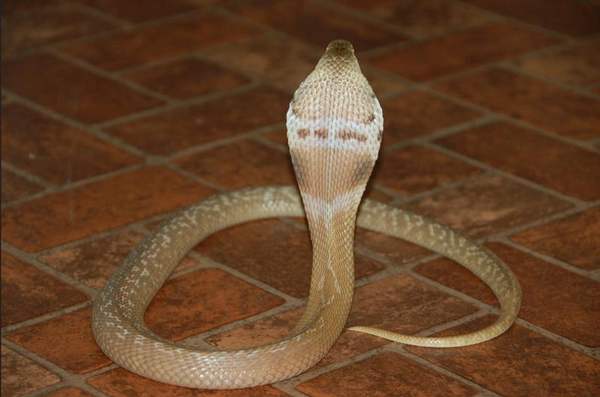Take the survey and voice your opinion regarding venomous reptiles.
If you live in Florida and want a say in how any potential rules regarding venomous reptiles are crafted, the Florida Fish and Wildlife Conservation Commission (FWC) is asking for your help. The FWC has posed six questions for the public to answer with regard to future rules regarding the keeping of both native and non-native venomous reptiles.

FWC
A monocled cobra.
The survey can be found here.
The questions are:
- Do you currently possess venomous reptiles in the State of Florida?
- What is your opinion of native venomous reptiles being kept in captivity in Florida? (Native – a species that occur naturally in Florida rather than occurring in Florida as a result of accidental or deliberate introduction by humans, for example an eastern diamondback rattlesnake.)
- What is your opinion of non- native venomous reptiles being kept in captivity in Florida? (Non-native – a species that does not occur naturally in Florida, for example a king cobra.)
- What is your opinion of venomous reptiles being housed in a personal residence?
- In your opinion would this tier system allow for better control over species that pose the greatest risk?
- If FWC adopted a tier system, what would you support as regulations for tier 1 species?
“This past year, we’ve had two Cobra escapes and the commissioners at the April meeting directed us to look at the venomous reptile rule and in doing so, we formed a technical assistance group and they’re more like two-person cells or researchers” FWC’s Captive Wildlife Section Captain Kara Hooker said in a statement. “So, we’re trying to get just a general consensus as well so we can put those opinions in our packet that we present to the commissioners.”
Based on the survey responses, the FWC’s Captive Wildlife Section will present its findings to the FWC commission in September 2016. The state currently has 291 venomous reptile licensees covering both native and exotic species, such as the cobras that escaped their enclosures in the past year.


